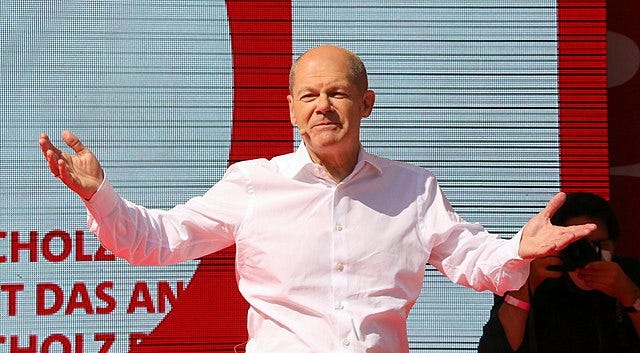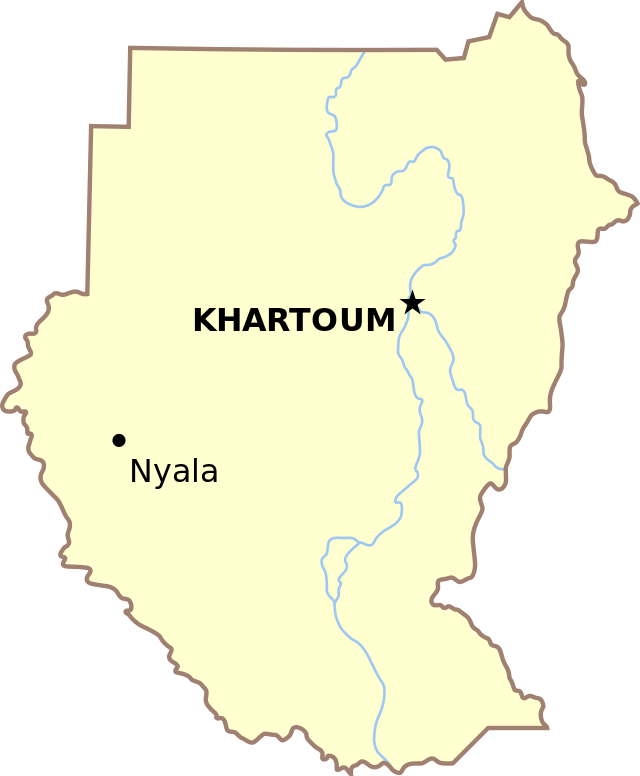🔅 Africa's Youthquake & Germany's Unexpected Love Affair with Africa
Plus, Gebisa Ejeta Receives the US's Highest Honour & Sudan War Update
Photo of the day
Malotwana Village, Botswana

Markets:
🟢 Nigerian SE: 68,111.71 (+1.45%)
🟢 Johannesburg SE: 69,451.97 (+0.63%)
— Ghana SE: 3,125.72 (+0.00)
🔴 Nairobi SE: 88.83 (-0.66%)
🟢 US S&P 500: 4,149.28 (+0.78%)
🔴 Shanghai Composite: 3,021.55 (+0.12%)
Zimbabwe Extends US Dollar System to 2030, Aiming for Stability | Zimbabweans will keep using the US dollar for another decade. The government had previously announced that the multi-currency system would end in 2025, causing chaos in the banking sector. But now, thanks to a new government gazette, the deadline has been extended to 2030. Turns out, people just don’t have much faith in the Zimbabwean dollar, which has lost 80% of its value this year alone.
*Data accurate as of the close of markets across the continent
Brief & Bright: Africa's Top Five
Africa's Youthquake: The Continent's Baby Boom is Shaking Things Up Worldwide

Afri population is projected to nearly double to 2.5 billion in the next 25 years. While other countries are dealing with ageing people, Africa's baby boom is creating the youngest, fastest-growing population on the planet. It's not just about numbers—this "youthquake" is already changing the face of the continent, from bustling cities to dominating the pop music world. Only a century ago, Africans made up 8% of the world's population, but by 2050, they'll make up one-quarter and at least one-third of all people aged 15 to 24. The median age is 19, and when you compare that to the likes of India (28) and China (38), you can see how much this "youthquake" is shaking things up. It's not going to be all smooth sailing, though—while some see endless opportunities, others worry about how to manage such rapid growth. Either way, Africa's got the world's attention now, and The New York Times has a write-up about it.
From a Village in Ethiopia to the Highest Honour in Science: Meet Gebisa Ejeta
Imagine growing up in a thatched home in Ethiopia, with limited access to school and having to travel 20km just to attend lessons. That was the reality for Gebisa Ejeta, who just received the National Medal of Science from US President Joe Biden. In case you didn't know, that's the highest honour a scientist can get in the US. And why does Mr. Ejeta deserve this prestigious award? Because of his "outstanding contributions to the science of plant genetics." He specializes in studying sorghum, a popular food source in Africa, and has even developed a sorghum hybrid that can resist drought and pesky parasites. Thanks to him, millions of people have better access to food security. And his childhood, plagued by hunger and food scarcity, only fueled his determination to make a difference.
Germany's Unexpected Love Affair with Africa: Why the Chancellor Made His Third Trip in Two Years
German Chancellor Olaf Scholz made his way to sub-Saharan Africa for the third time in two years, proving that the country has a newfound interest in the region. Turns out, they need Africa more than they thought—especially after realizing that their usual allies may not always have their backs (ahem, Russia's invasion of Ukraine and its cutoff of energy supplies). Plus, with conflicts and instability plaguing other parts of the world, Africa's energy resources look mighty appealing. But it's not just about gas and oil—Germany also needs young, skilled workers to keep their economy (made of ageing workers) chugging along. And with a lack of baggage as a former colonial power, Germany hopes to be more readily received than the likes of France. It has also been trying to make amends for past wrongs, like returning sculptures looted from Nigeria. Indeed, Nigeria is where quite a bit of the Chancellor's focus was directed on this trip, with talks of potentially purchasing gas and addressing the country's underinvestment in the energy sector and infrastructure.
The Case of the Deleted Video: Zimbabwe's VP Collapse Causes Media Uproar
Imagine this: You're a journalist at a campaign rally in Zimbabwe when suddenly the second vice president collapses and is airlifted to a mysterious location for medical attention. Chaos ensues, but as you try to capture the moment on your phone, security agents swoop in and demand that you delete any evidence of the incident. It sounds like a scene from a spy movie, right? Well, it actually happened in Zimbabwe, where there's still no official word on the VP's condition one week later. Talk about being kept in the dark. When questioned about the incident, government officials and even the minister of information refused to comment. The Zimbabwe Union of Journalists is calling this a violation of both journalistic rights and the constitution itself. But don't worry, the first vice president assured the public that Zimbabwe respects human rights and freedoms at a rally against... sanctions (imposed on Zimbabwe by the US and EU).
Sudan War Update
The Rapid Support Forces (RSF) have taken control of Nyala, Sudan’s second-largest city, in a major move that could change the course of the country’s six-month war. The army hasn’t responded yet, but the RSF claims to have seized all of the army’s equipment and even posted a video of their soldiers celebrating with gunfire (because nothing says victory more than that, right?). This comes as negotiations between the two sides are set to resume in Jeddah. Meanwhile, the government has basically abandoned the capital, Khartoum and relocated to Port Sudan on the Red Sea coast.
Food for Thought
"It is better to be poor when one is young, rather than becoming poor at old age."
— Kenyan Proverb






